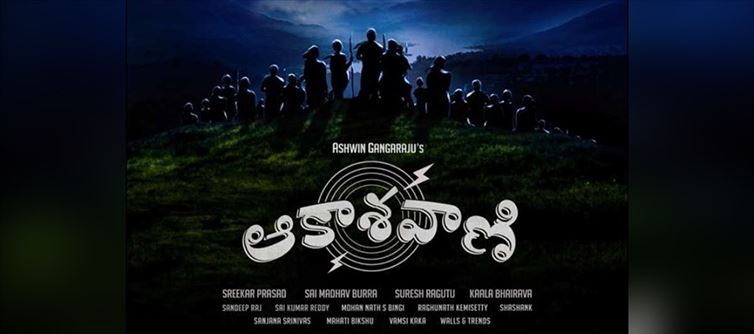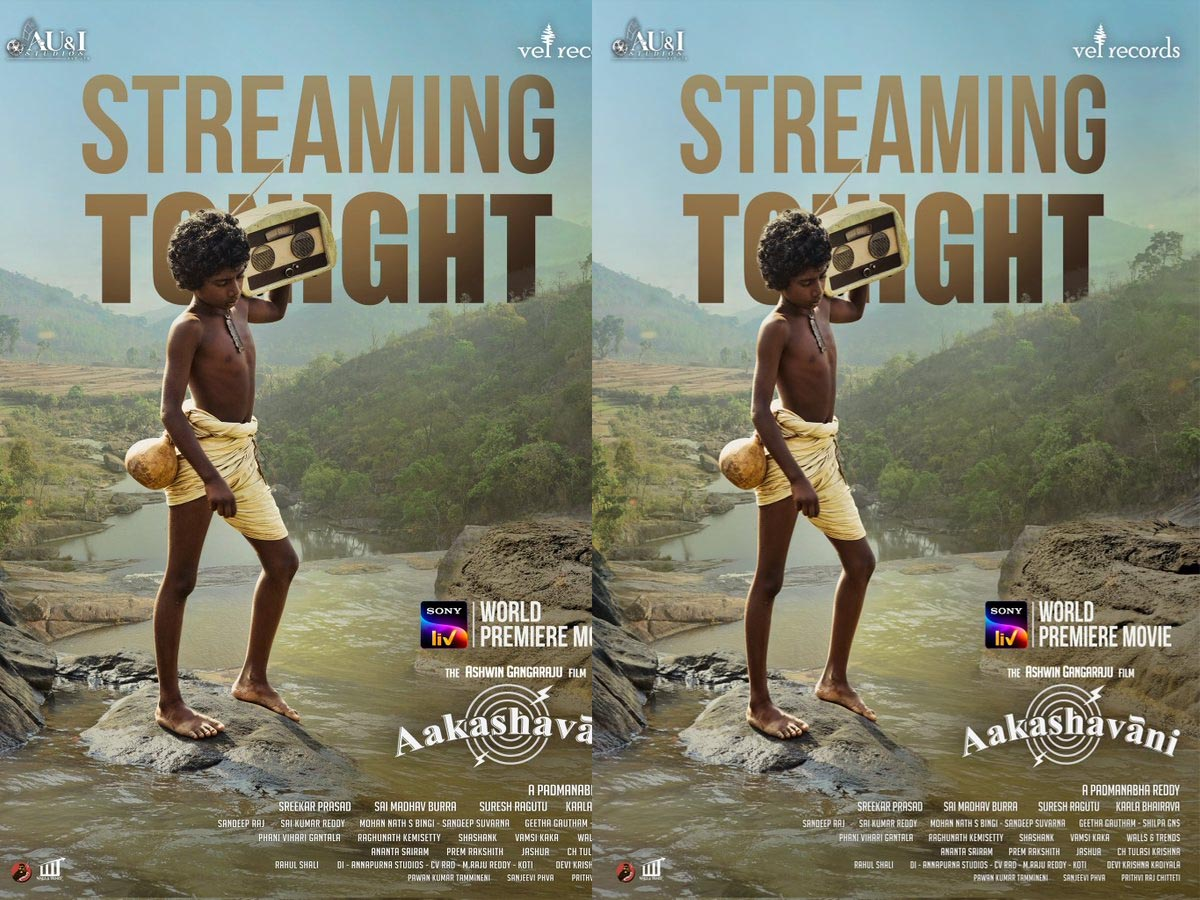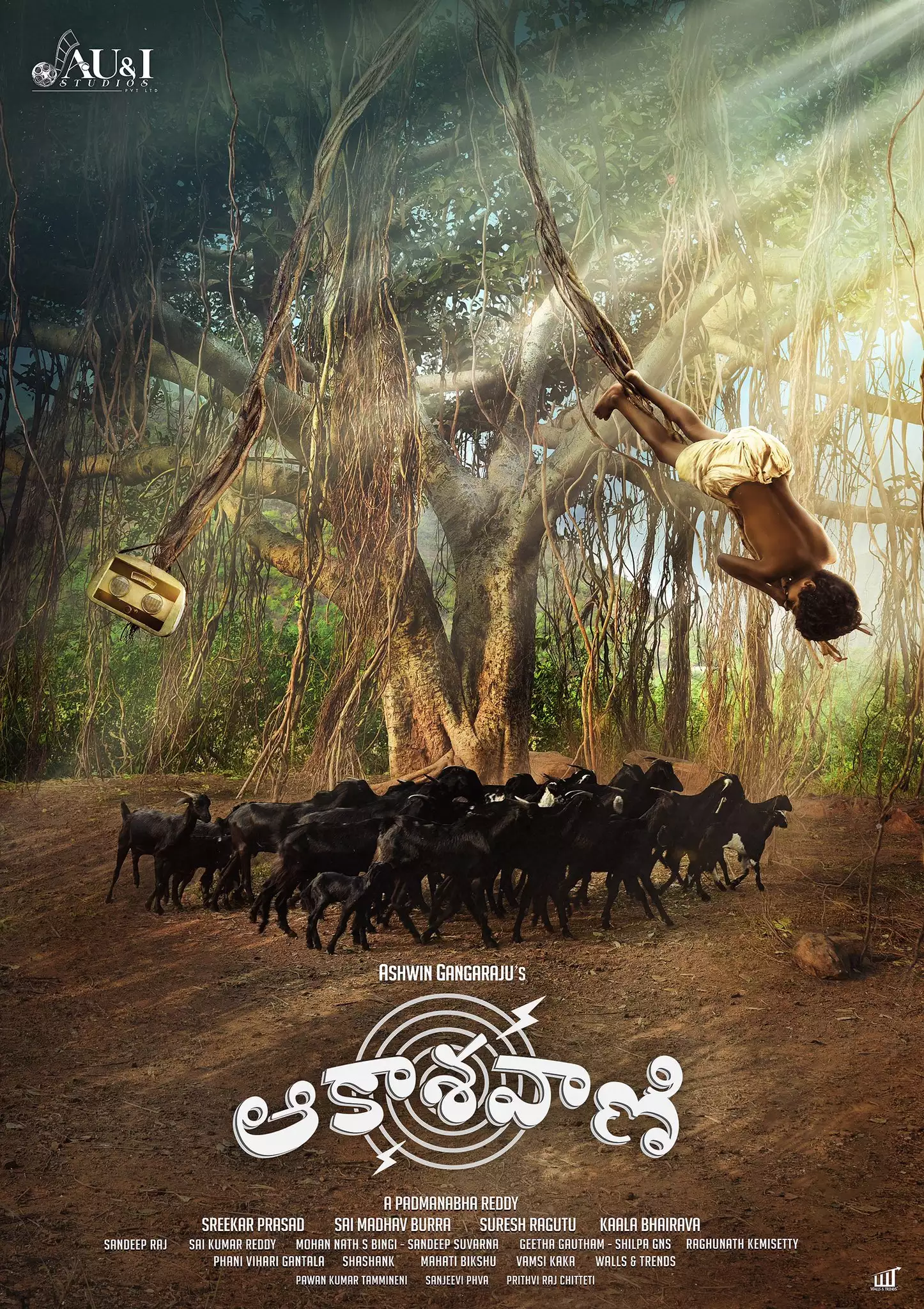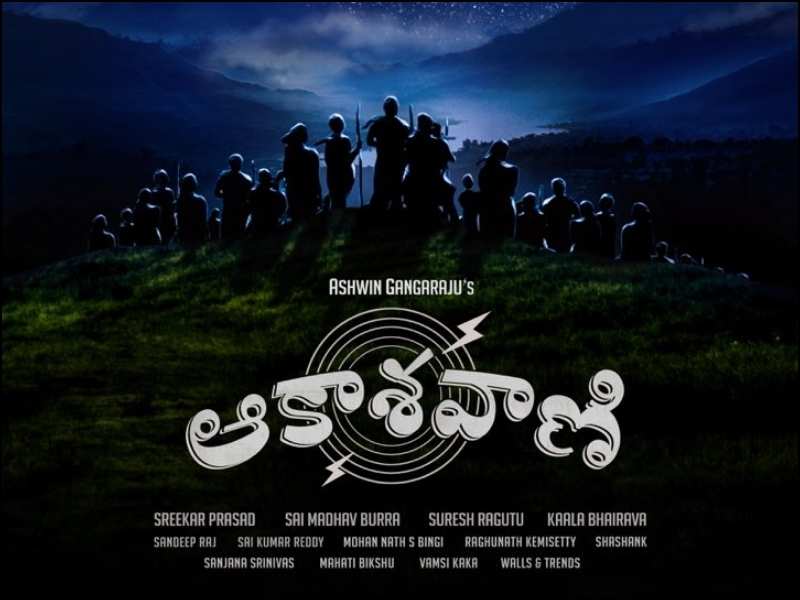Pushpa Telugu Movie Review, Rating
పుష్ప తెలుగు సినిమా రివ్యూ ,రేటింగ్
-
Missed It in Theatres? Netflix Is Bringing Tere Ishk Mein to Tamil Audiences Worldwide
-
No Romance. No Softness. Just Rage: Rashmika Mandanna’s Mysaa Is About to Detonate
-
Will Christmas Releases End 2025 on a Positive Note?
-
Daily Horoscope for December 22, 2025: Aries to Pisces
-
Why Alia Bhatt’s Gangubai Story Is Being Torn Apart?
-
Is the Release Date of Parasakthi Changing?
-
Mithran Jawahar to Direct Chanmuga Pandian
-
Karate Babu Shaping Up as a Political Thriller
-
“Give Your Best Effort and Go All Out”: Stalin’s Directive to DMK Functionaries
-
DMK’s Election Manifesto Preparation Committee Holds Its First Meeting Today
-
The Sister Role That Could Steal 2027 For Mrunal Thakur !?!
-
Fans Crowd Around Samantha for Selfies, Creating Excitement
-
First Single Update from With Love, Starring Abishan Jeevinth
-
Kayadu Lohar Joins Nani’s The Paradise
-
Third Song from Vikram Prabhu’s Sirai Released
-
“The BJP’s Plans Will Never Succeed in Tamil Nadu,” Says Udhayanidhi Stalin
-
Appointment Orders Issued to First Batch of 723 Nurses Based on Seniority: Health Minister Ma. Subramanian
-
Tamil Nadu Ministers’ Committee Holds Talks with Government Employees and Teachers
-
DMK Election Manifesto Preparation Committee Holds Consultation Meeting at Anna Arivalayam, Chennai
-
Steps to Be Taken to Swiftly Resolve Nurses’ Demands, Assures Health Minister Ma. Subramanian
-
Grace With an Edge: Samantha’s Saree That Changed the Mood
-
Nurses With Two Years of Service to Be Given Priority When Vacancies Arise: Health Minister Ma. Subramanian
-
Unexpectedly Large Number of Voters Deleted After SIR Exercise: Udhayanidhi Stalin Raises Concern
-
From Power Boots to Soft Curves: Pooja Hegde’s Fashion Flex
-
Samantha Faces Trouble In Crowd - Who Will Be Responsible If Something Goes Wrong?
-
Not a Cameo, Not a Favour — Shivarajkumar Is Back to Shake Jailer 2
-
Doctor Doom Is Coming — And Marvel Wants You Afraid
-
Pandora Is Bleeding: Why Avatar: Fire and Ash Won’t Touch $2 Billion
-
Avatar’s Most Terrifying Antagonist Has the DNA of the world’s most beloved silent-film icon
-
Dubbing Is the Real Villain: The Dhurandhar 2 Reality Check
-
Valluvarkottam Was Never This Crowded — Until Parasakthi Happened
-
Sun TV Didn’t Change — Vijay Did
-
If two giants could collide and both win, why does Vijay flinch at a Sivakarthikeyan clash?
-
Deleted Votes, Imported Voters — How India’s Election System Was Hijacked in Tamil Nadu
-
Projects Approved, Then Pulled—What’s Really Happening To Sreeleela?
-
Murder Mystery Solved by Sheep?! Yes, You Read That Right
-
Raat Akeli Hai: The Bansal Murders Review — A Familiar Maze, Still Worth Getting Lost In
-
Is This the Story of Jananayagan? A Rumour That Sounds Uncomfortably Real
-
ICMR Study Identifies Key Risk Factors for Women
-
Critics and Fans Praise Saumya’s Performance!??
-
Actress Refuses to Remove Mask for Photos!!
-
ChatGPT Offers Insights Using Birth Date
-
Illegal Mining Poses Major Threat To Aravalli Ecosystem
-
Satwik-Chirag Aim For Future Tournament Success!!
-
Kartik-Ananya Promote Film On KBC 17 Sets!!
-
Shararat Song Goes Viral Despite Casting Change!!
-
Anil Kapoor Pays Tribute To Late Feroz Khan
-
Ram Charan Spotted Walking in Foggy Delhi Streets!!
-
Why Mumtaz Declined Seeta Aur Geeta Film Offer??
-
Rashmika Mandanna Drops a Bombshell Dress on Her Mystery Getaway
-
Shruti Haasan’s Netted Leaf Look Is Dark Glamour at Its Most Dangerous
-
Sreeleela Just Won the Style Grand Slam—Without Touching a Racket
-
2 Lakh In, ₹1.5 Lakh a Month Out — How Amul Turns Footfall into Fortune
-
Why TIME Picked This K-Drama Over Everything Else — This Isn’t Just a Show. It’s a Reckoning
-
Vijay’s Rise Is a Trail of Burned Bridges—and Fans Are Still Defending the Ashes
-
Pooja Hegde Just Owned Tamil YouTube in 2025 — This Isn’t Popularity, This Is Domination
-
Pooja Hegde Posted the Photo In Monokini — But...
-
No Gimmicks, No Excess—Just Star Power: Bhagyasree Borse Commands the Lens
-
Circus Lights, Silent Grief: Kiara Advani’s First Look in ‘Toxic’ Is Anything but Pretty
-
Can Ravipudi Repeat the Sankranti Magic Again?
-
Will Mahesh Babu Showcase Traditional Martial Arts in Varanasi?
-
Ram Charan Begins Shooting for Peddi at Rashtrapati Bhavan
-
Tirunelveli: Chief Minister M. K. Stalin Attends Porunai Museum Inauguration; Captures Moments in Photographs
-
Chief Minister M. K. Stalin Invites Prime Minister Modi and Union Minister Nirmala Sitharaman to Visit Porunai Museum
-
James Cameron’s Savage Reality Check on Avatar 4
-
Chief Minister M. K. Stalin Launches Welfare Schemes in Tirunelveli; Addresses Public Gathering
-
Release Date Announced: Do You Know When Shane Nigam’s Hall Will Hit the Screens?
-
Actor Suriya Pays Personal Tribute to Late Actor Srinivasan; Final Rites to Be Held Today
-
Chief Minister M. K. Stalin Inaugurates 15 New Bus Transport Services in Tirunelveli
-
9.737 Million Voters Deleted; DMK District Secretaries’ Meeting to Be Held Today Under the Leadership of M. K. Stalin
-
“Only Those Who Study History Can Create History,” Says Chief Minister M. K. Stalin
-
Attempt to Disrupt Tamil Nadu’s Peace: Chief Minister M. K. Stalin Expresses Strong Anger at Tirunelveli Christmas Event
-
Porunai Museum Inaugurated in Tirunelveli at a Cost of ₹62 Crore to Showcase the Ancient Legacy of Tamils: Chief Minister M. K. Stalin
-
DMK District Secretaries’ Meeting to Be Held Today Under the Leadership of Chief Minister M. K. Stalin; Key Deliberations on Deletion of 9.7 Million Voters
-
Porunai Museum: A Historic Edifice Where Tradition and Innovation Walk Hand in Hand
-
Belief Is Personal—Public Space Is Not
-
Why Ajith Fans Shine Bright While Vijay's Devotees Spiral Into Madness - From Poison Plots to Pregnancy Risks
-
The Cost of Blind Vijay Devotion — and the Price Women Pay
-
Husband Brought on a Stretcher to Prove He’s Not Lying - Paralyzed, Speechless, and Dragged to Court
-
When Genius Got Drunk on Its Own Myth — The Tragedy of Ram Gopal Varma
-
Blood Money in Uniform? The Defence Bribe Case That Shook the Army’s Conscience
-
RAW, ISI, Bikini & Betrayal - How YRF Would Spy-Wash Dhurandhar
-
$3 Million Per Badge: How ICE Built the Largest Recruitment Surge in U.S. History
-
San Francisco’s Biggest Blackout Leaves a City Stranded — Lights Out, Answers Missing
Empowering 140+ Indians within and abroad with entertainment, infotainment, credible, independent, issue based journalism oriented latest updates on politics, movies.
India Herald Group of Publishers P LIMITED is MediaTech division of prestigious Kotii Group of Technological Ventures R&D P LIMITED, Which is core purposed to be empowering 760+ crore people across 230+ countries of this wonderful world.
India Herald Group of Publishers P LIMITED is New Generation Online Media Group, which brings wealthy knowledge of information from PRINT media and Candid yet Fluid presentation from electronic media together into digital media space for our users.
With the help of dedicated journalists team of about 450+ years experience; India Herald Group of Publishers Private LIMITED is the first and only true digital online publishing media groups to have such a dedicated team. Dream of empowering over 1300 million Indians across the world to stay connected with their mother land [from Web, Phone, Tablet and other Smart devices] multiplies India Herald Group of Publishers Private LIMITED team energy to bring the best into all our media initiatives such as https://www.indiaherald.com



























